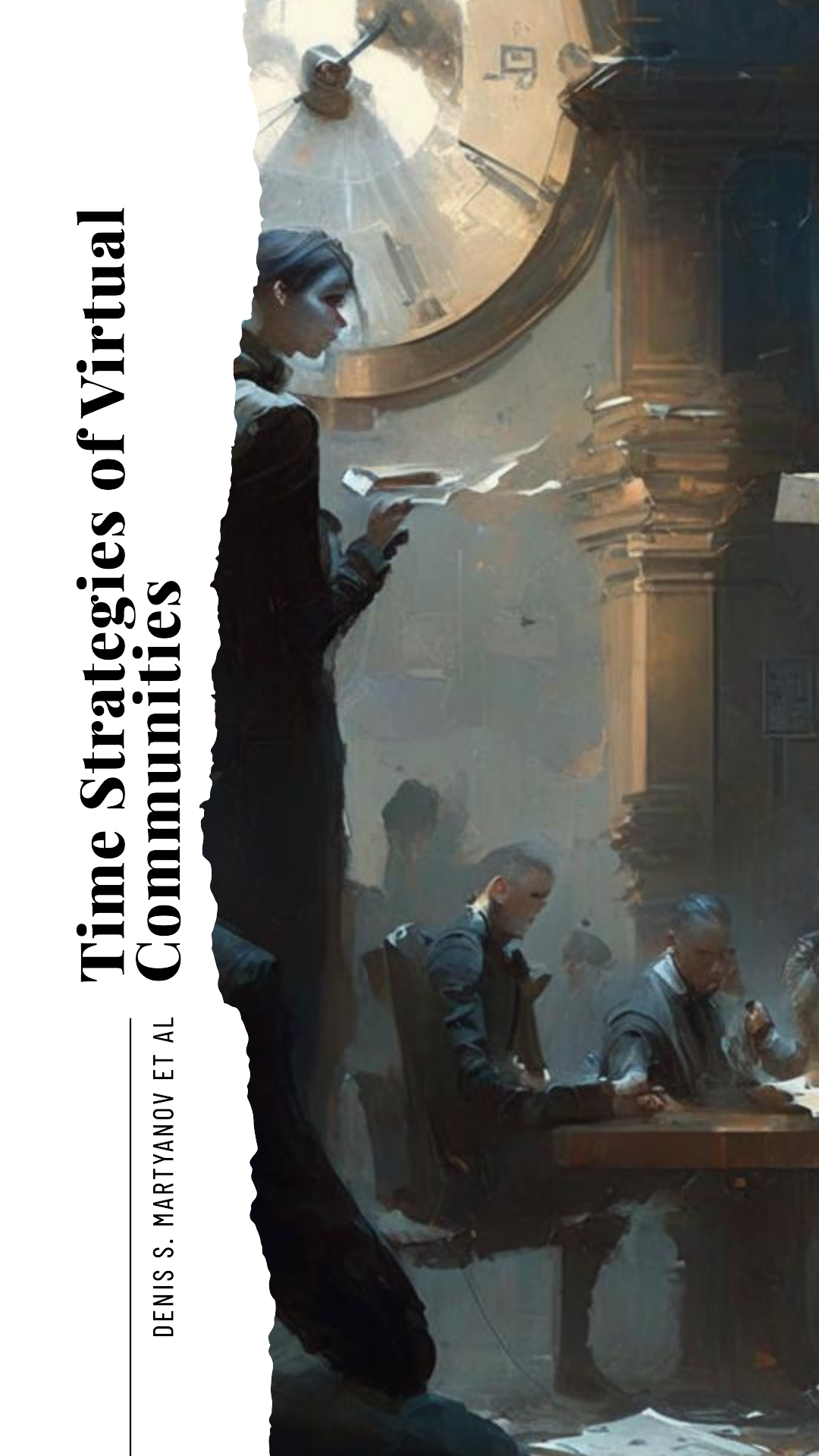Abstract
The Internet has a significant impact on the perception of time and its organization. There is a growing body of literature that recognizes the importance of measuring social time in relation to the virtual communities of social media. The dynamics of communication in virtual communities largely depend on the time strategies that shape the content plan of a particular medium. Based on contemporary theories such as the concept of ‘timeless time’, we analyze the features of the temporal characteristics of the Internet, considering the multiple dimensions of time in virtual communities.
This study aims to identify time strategies depending on their types (e.g., belonging to the certain platform, or target audience). The research is based on posts from 99 politicized virtual communities on the Vk.com and Telegram platforms in 2022. We employ heatmaps and combine them with cluster analysis. As a result, certain patterns of temporal strategies within communities became apparent, depending on the hour, day of the week, and month. We also establish a connection between time strategies and the event context of 2022.
This article may be of interest to sociologists, political scientists, and researchers in cultural and communication studies who are interested in applied aspects of social time research.
References
Ambarova, P. A. (2014). The concept and typology of temporal strategies of behavior of social communities. Izvestia Ural Federal University. Series 1, Problems of Education, Science, and Culture., 123(1), 123–139. (In Russian).
Artemov, V. A. (2013). A Sketch of sociological conceptualizing of social time. Sotsiologicheskie Issledovaniya, 11, 3–9. (In Russian).
Bauman, Z. (2008). Fluid modernity. Piter. (In Russian).
Bergson, H. (2001). Time and Free Will: An Essay on the Immediate Data of Consciousness. Courier Corporation.
Castells, M. (2010). The Rise of the Network Society: The Information Age: Economy, Society, and Culture (2nd ed.). Wiley.
Durkheim, D. (2018). Elementary Forms of Religious Life: The Totemic System in Australia. Elementarnye formy. (In Russian).
Giddens, A. (1984). The Constitution of Society: Outline of the Theory of Structuration. University of California Press.
Gurvitch, G. (1963). Social Structure and the Multiplicity of Times. In E. A. Tiryakian (Ed.), Sociological Theory, Values, and Sociocultural Change: Essays in Honor of Pitirim A. Sorokin (pp. 171–184). Free Press. https://doi.org/10.4324/9781315129976-9
Laguerre, M. (2004). Virtual Time. Information, Communication & Society, 7(2), 223–247. https://doi.org/10.1080/1369118042000232666
Lee, H., & Whitley, E. A. (2002). Time and Information Technology: Temporal Impacts on Individuals, Organizations, and Society. The Information Society, 18(4), 235–240. https://doi.org/10.1080/01972240290075084
Lukyanova, G., Martyanov, D., & Budko, D. (2020). Factors of Temporal Behavior in Online Media: What Shapes Time on Internet? In D. A. Alexandrov, A. V. Boukhanovsky, A. V. Chugunov, Y. Kabanov, O. Koltsova, & I. Musabirov (Eds.), Digital Transformation and Global Society (pp. 91–104). Springer International Publishing. https://doi.org/10.1007/978-3-030-65218-0_7
Park, R. E. (2009). Contemporary society. Voprosy socialnoy teorii, 3, 240–259. (In Russian).
Popov, D. V., Poliakova, N. B., Shadrin, A. A., & Iarkeev, A. V. (2021). Chronopolitics as a Political Ontology of Time (Biopolitical Aspect). Bulletin of Udmurt University. Series Philosophy. Psychology. Pedagogy, 31(1), Article 1. https://doi.org/10.35634/2412-9550-2021-31-1-5-18 (In Russian).
Senichkina, E. A., & Drobotova, O. O. (2021). Content plan as an effective tool for content management in social networks. Merketing innovations in the modern world. Collection of Scientific and Practical Articles of the All-Russian (National) Scientific and Practical Conference, 67–71. (In Russian).
Shtompel, L. A. (2005). Time on the Internet. Bulletin of Higher Education Institutes. Northern-Caucasus Region. Social Sciences, 4, 10–16. (In Russian).
Sorokin, P. A. (1943). Sociocultural Causality, Space, Time: A Study of Referential Principles of Sociology and Social Science. Russell-Russell INC.
Sorokin, P. A., & Merton, R. K. (1937). Social Time: A Methodological and Functional Analysis. American Journal of Sociology, 42(5), 615–629. https://doi.org/10.1086/217540
Strate, L. (1996). Cybertime. In L. Strate, R. L. Jacobson, & S. B. Gibson (Eds.), Communication and Cyberspace: Social Interaction in an Electronic Environment (pp. 351–377). Hampton Press.
Subrt, I. (2015). Concept of social time in sociology – promising approach or a theoretical impasse? Sotsiologicheskie Issledovaniya, 4, 3–11. (In Russian).
Subrt, I. (2016). Conception of time as a social category by Вurkheim – view on a theoretical conundrum. Sotsiologicheskie Issledovaniya, 8, 98–106. (In Russian).
Tarde, G. (2015). Public opinion and the crowd. LENAND. (In Russian).
Toffler, E. (2002). Shock of the Future. AST. (In Russian).
Tönnies, F. (2002). Community and Society: Basic Concepts of Pure Sociology. Vladimir Dal. (In Russian).
Urry, J. (2007). Mobilities. Polity.
Veselkova, N. (2003). The Sociology of Time and Georges Gurvitch. Rubezh, 18, 50–64. (In Russian).
Veselkova, N. V. (2000). Does the Sociology of Time Exist? Russian Sociological Forum, 1–2, 4. (In Russian).
Wong, J. I. (2016, June 7). The internet has developed its own prime time, and it’s coming for TV. Quartz. https://qz.com/701016/the-internet-has-developed-its-own-prime-time-and-its-coming-for-tv
Zalot, M. C. (2013). Buying “Time” on eBay: Cybertime, Nostalgia, and Currency in Online Auctions. Atlantic Journal of Communication, 21(1), 17–28. https://doi.org/10.1080/15456870.2013.743317
Zborovsky, G. E., & Ambarova, P. A. (2014). Management of Temporal Strategies of Behavior of Professional Communities: Problems and Possibilities. National Interests: Priorities and Security, 10(5), 15–21. (In Russian).

This work is licensed under a Creative Commons Attribution 4.0 International License.

